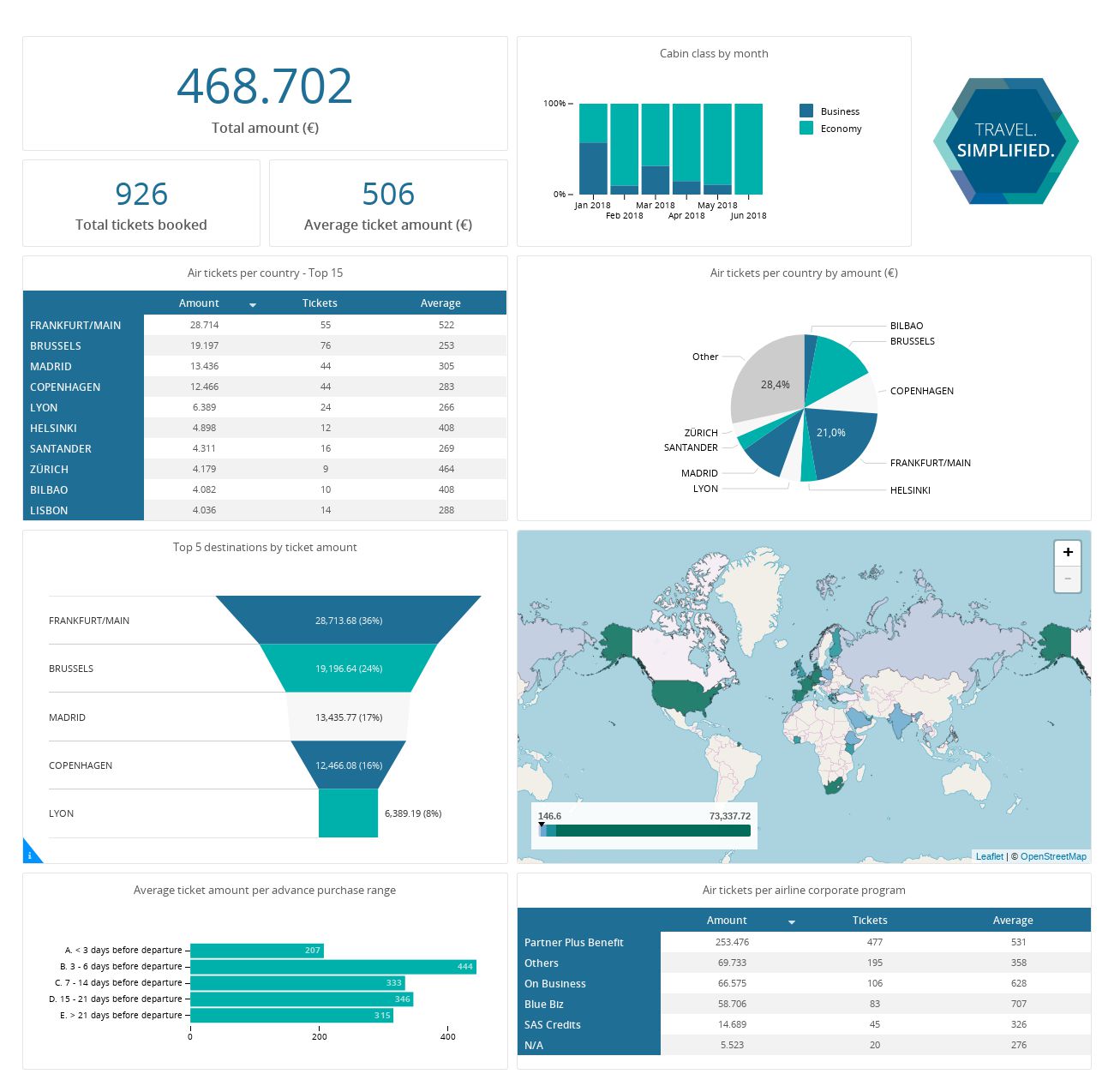

A clear view of your business trips knowledge is more than just power
Thorough reporting of your company travel expenses is certainly worth your time and attention. Because it's costs can quickly start pushing the limits of your budget, and you can easily miss out on great opportunities and possible cost savings. As an entrepreneur, manager or director, you are on top of your core business and everything is meticulously planned and mapped out. You’ve made clear arrangements with suppliers and follow everything up with detailed management reports. But perhaps business travel expenses - which often take a significant bite out of the budget - too often still escape your attention.
Finger on the pulse
Thorough analysis is still the best way of keeping your finger on the pulse. It gives you a snapshot of the situation as it is today. And when it comes to business travel, it's not just a question of total annual expenses. A good reporting tool gives you a wide range of insights. You can identify certain patterns or see the airlines, rental car companies, and hotels where you are generating significant volumes. And, of course, you can also evaluate whether certain costs outweigh the results.

Centralising is key
A basic prerequisite for detailed travel expense reporting is making sure all your business trips are centralised. As long as the trips are booked through different online platforms or providers, it is almost impossible to get a realistic picture of the situation. The data is fragmented and some expenses even fly completely under the radar. But by doing things like working with a travel management Company, all business trips can be booked centrally and you can be sure of transparent, accurate reporting.
Unprecedented opportunities
By centralising your travel needs, you can get a complete overview of your travel expenses in the different cost categories, like flights, hotels, and transfers. As a result, opportunities usually arise where the account manager of the business travel agency can give you useful advice, for example, you may want to close a corporate deal with one specific hotel that you use frequently to reduce your price. You may also be able to make a deal with the airline based on certain routes.
From analysis to insight
You would be amazed at the insights that can still be gained from a detailed look at your business trips. To start with, you can map out booking patterns. Are there recurring trips and are they booked on time or is it always a matter of finding something fast, fast and last minute, often at higher prices? Are some employees finding loopholes around policies? In larger companies, there are always a few employees who push the boundaries. For example, travellers who consciously choose layover flights, because the longer trip duration allows them to fly business class according to the travel policy – even though was a direct economy flight available. Are purchases centralised? For example, do you use one hotel chain or do you book everyone according to their own preference, which means the company is losing out on extra benefits?
Significant savings
The insights provided by that management information will allow you to optimise your travel expenses. Plus, good travel management companies can also provide travel expense analyses per department of your company or even per traveller. You can then choose particular parameters that are important to you and generate reports that will help you get the most out of the data.
Pay attention to hidden costs
Companies looking to achieve full process integration should also take into account the process costs (e.g. the hours it takes a management assistant to book a trip or an accountant to process expense reports) in this process. If you take all of that into consideration, you'll soon come to the conclusion that the service costs of a travel management company do not outweigh those of the DIY approach to business trip booking. Ancillary services also often enter come into play via invoicing or credit card payments, and aren't always actually measured. But the truth is that they often account for up to 8% of total direct travel expenses.
Follow-up on the travel policy
And last but not least, reliable reporting is the foundation of a good travel policy. If your company still hasn’t implemented reporting, the first key conclusions can often be drawn after only 6 months. But insights gained are also used to regularly adjust an existing travel policy where necessary if, for example, the current travel policy isn't being properly followed. A travel policy provides clarity for travellers and is a means of managing savings from a financial point of view. It is also a way to lay the foundations for equalising privileges among your travelling employees.
